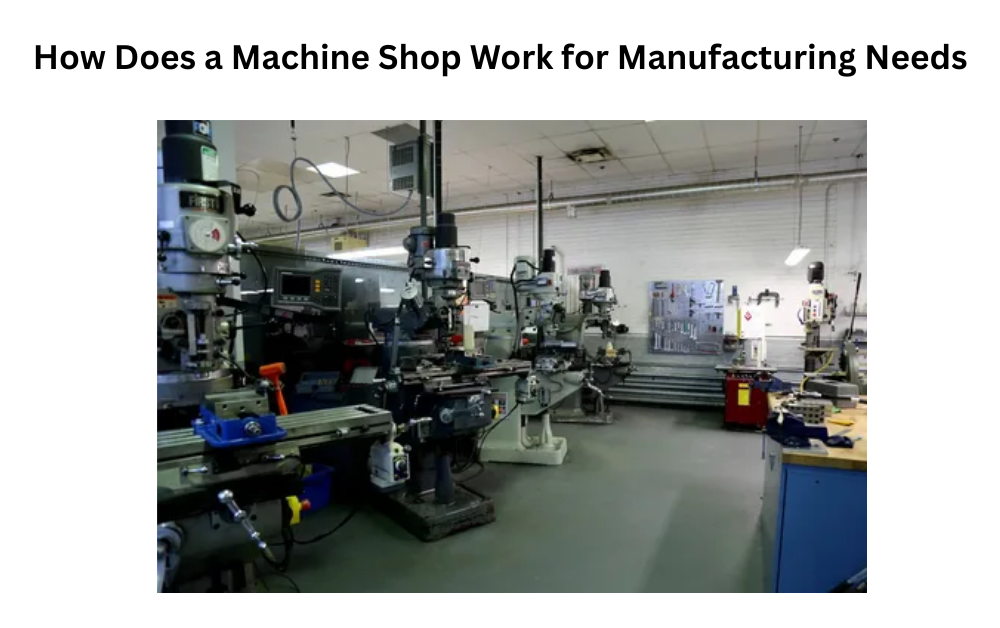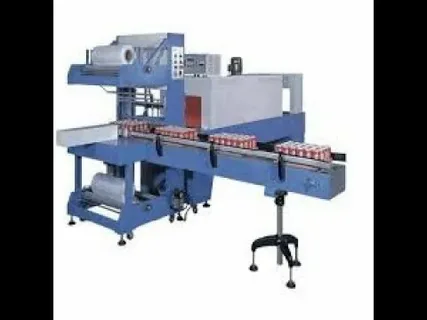How Does a Machine Shop Work for Manufacturing Needs

Manufacturing is one of the strongest pillars of modern industries, and at the heart of it lies the machine shop. A machine shop is not just a place filled with machines, but a vital space where raw materials are shaped into usable parts. Whether it is a small custom tool, a car engine part, or a complex component for an aircraft, machine shops make it possible.
In this blog, we will explore in detail how a machine shop works, what processes are involved, the kind of equipment used, and why machine shops are so important for industries. Everything is explained in simple words so that anyone can understand, whether you are new to manufacturing or simply curious about the process.
Note: A Machine Shop Dubai offers precision engineering and manufacturing services, providing high-quality machining, repairs, and custom-made parts to support industries with accuracy and reliability
Understanding What a Machine Shop Is

A machine shop is a workshop where different machines are used to cut, drill, shape, and finish metal or other materials. The goal is to create accurate parts that can fit into larger systems, like vehicles, machines, or electronic devices.
In simple terms, a machine shop takes raw material and turns it into a finished product that meets exact measurements. This accuracy is what makes machine shops so important because even the smallest error can cause problems in big projects.
The Main Role of a Machine Shop in Manufacturing
Machine shops act as the backbone of industries. They are needed in almost every sector—construction, automotive, oil and gas, aerospace, electronics, and many others. The role of a machine shop in manufacturing can be divided into a few important areas:
- Creating Precision Parts – Machine shops can make very small and very large parts with high accuracy.
- Repairing Damaged Equipment – Old or damaged machine parts can be re-made or repaired in a shop.
- Custom Designs – When businesses need something unique, a machine shop can build it from scratch.
- Supporting Mass Production – Many industries rely on machine shops for repeated production of parts.
How a Machine Shop Works Step by Step
To understand how a machine shop works, it is helpful to look at the step-by-step process from the time raw material enters the shop until the finished part is ready.
Receiving the Design or Requirement
The first step in any machine shop is receiving the design or requirement. This can be a drawing, a computer file, or even a physical part that needs to be copied. The machinist studies the design carefully because accuracy depends on clear instructions.
Choosing the Right Material
Next, the correct material is selected. Common materials used in machine shops include steel, aluminum, brass, copper, and sometimes plastics. The choice depends on the strength, durability, and purpose of the part.
Setting Up the Machines
Once the design and material are ready, the machinist prepares the machines. This can include lathes, milling machines, drills, grinders, or computer-controlled machines. The setup is very important because it affects the final accuracy.
Cutting and Shaping
This is the heart of the process. The raw material is cut, drilled, or shaped to match the design. In old times, this was done manually. Today, computer-controlled machines (CNC machines) make the process faster and more accurate.
Testing and Measuring
After shaping, the part is measured with special tools to check accuracy. Even a small difference in size can cause big issues, so this step ensures quality.
Finishing and Polishing
The part is then smoothed, polished, or coated if required. This step gives the part durability and improves its performance.
Delivery of the Final Part
Finally, the finished part is sent to the customer or to the main assembly line where it will be used.
Types of Machines Used in a Machine Shop
A machine shop uses many different machines. Each machine has a special purpose. Let’s look at some of the most common ones:
Lathe Machine
This machine is used to rotate material while cutting. It is perfect for making round or cylindrical parts like rods and shafts.
Milling Machine
This machine uses rotating tools to remove material from a block. It can create different shapes, slots, and holes.
Drilling Machine
A simple but very important machine that makes holes in parts with high accuracy.
Grinding Machine
This machine smooths and finishes the surface of a part to remove rough edges.
CNC Machines
CNC stands for Computer Numerical Control. These are modern machines that follow computer programs to cut and shape material with extreme accuracy. They are faster, safer, and more reliable than manual machines.
Why Accuracy Is So Important in a Machine Shop
Accuracy is the main strength of any machine shop. In industries like aerospace or medical equipment, even a difference of one millimeter can cause failure. Machine shops make sure that every part fits perfectly into the larger system.
For example:
- A car engine part must fit exactly to avoid breakdowns.
- A turbine blade must be shaped with precision to avoid accidents.
- Medical implants must match patient needs perfectly.
Without machine shops, achieving such precision would be impossible.
Skilled People Behind the Machines
Machines alone cannot do everything. A machine shop needs skilled people to operate them. These people include:
- Machinists – Experts who run the machines and shape materials.
- Engineers – Professionals who design the parts and provide technical guidance.
- Quality Inspectors – People who check every part to make sure it meets the required standards.
- Technicians – Workers who maintain and repair the machines.
The teamwork of these people ensures that every project is successful.
How Technology Has Changed Machine Shops
Machine shops today are very different from those in the past. Technology has brought big improvements.
Computer-Controlled Operations
CNC machines now allow machine shops to work with higher accuracy and speed. A design can be entered into the computer, and the machine does the rest.
3D Printing
Some machine shops now use 3D printing for prototypes. This helps test designs quickly before full production.
Digital Measuring Tools
Modern measuring tools give quick and exact results, saving time and reducing errors.
Safer Working Conditions
With advanced machines, the risk of accidents has reduced. Automatic systems ensure safety while maintaining efficiency.
Industries That Depend on Machine Shops
Machine shops are important to many industries. Some of the key ones include:
- Automotive Industry – Cars, trucks, and motorcycles all need machine parts.
- Aerospace Industry – Aircraft parts require very high precision.
- Oil and Gas Industry – Strong and durable parts are needed for drilling and pipelines.
- Construction Industry – Heavy machinery parts are often built in machine shops.
- Electronics Industry – Small and delicate parts for devices are shaped here.
Benefits of Using a Machine Shop
Machine shops provide many benefits that make them essential:
- High accuracy in making parts
- Ability to repair old or broken equipment
- Custom solutions for unique problems
- Faster production with modern technology
- Support for small and large industries
Challenges Faced by Machine Shops
Even though machine shops are highly efficient, they also face challenges:
- High cost of advanced machines
- Need for skilled workers
- Maintaining accuracy with large projects
- Rising costs of raw materials
- Competition from international markets
Despite these challenges, machine shops continue to evolve and remain critical for industries.
The Future of Machine Shops
The future of machine shops looks very promising. With the rise of automation, robotics, and artificial intelligence, machine shops will become even faster and more accurate. Eco-friendly practices like reducing waste and recycling materials will also become a big focus.
Industries will continue to rely on machine shops for both large-scale production and small custom parts.
Final Thoughts
A machine shop is much more than a place with machines. It is the heart of manufacturing, where raw material is transformed into precise and useful parts. From cars and airplanes to construction equipment and medical tools, machine shops play an important role in making our daily lives easier and safer.
By understanding how a machine shop works, we can truly see its importance in supporting industries and building a stronger future.
Raysun Techno Industries LLC is spearheading metalwork technology with its sheer expertise and dedication. With the high-end technologies at their disposal, our expert engineers are capable of providing an array of services ranging from metal welding, machine shop and electromechanical to surface treatment and inspection. Be it for machining or welding, our team is always equipped to provide consistent and premium services to our vast clientele dealing in the Oil and Gas industry.
For more insightful articles related to this topic, feel free to visit: viewpen.online




